“We Now Have Relative Peace” ; Changing Conflict Dynamics in Northern Karamoja, Uganda
Darlington Akabwai
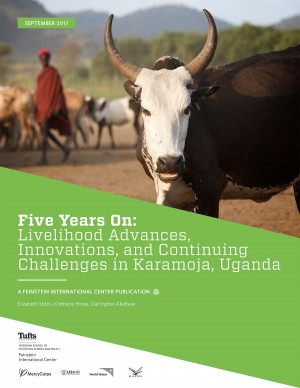
Five Years On: Livelihood Advances, Innovations, and Continuing Challenges in Karamoja, Uganda
The report is part of an evaluation of the Growth, Health and Governance Program, that measures changes in product service utilization and livelihood development and pragmatic innovations in Karamoja region.
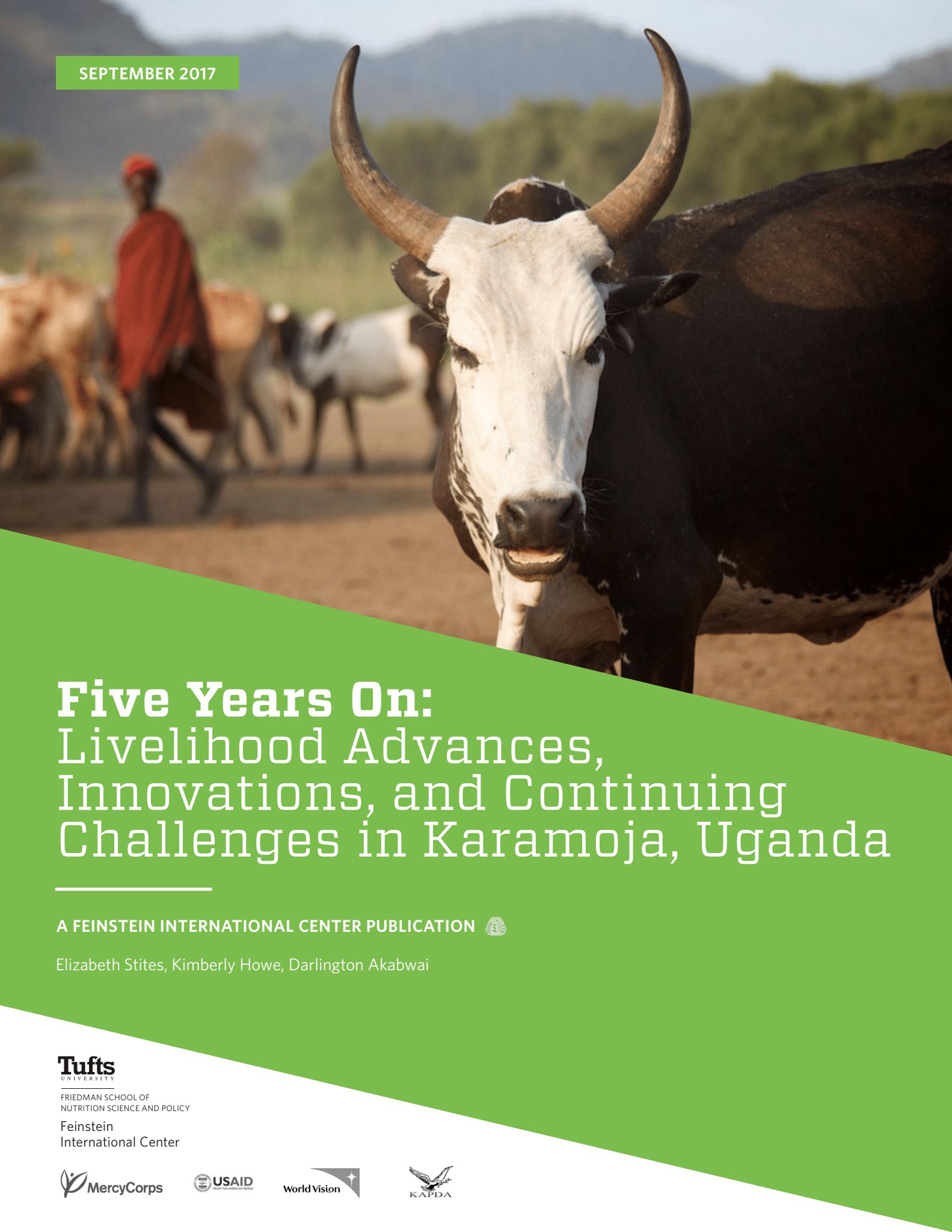
Five Years On: Livelihood Advances, Innovations, and Continuing Challenges in Karamoja, Uganda
A quantitative analysis of a representative group of villages indicates that there has been a widespread increase in the utilization of services as well as improvement to well-being for residents of northern Karamoja since 2013
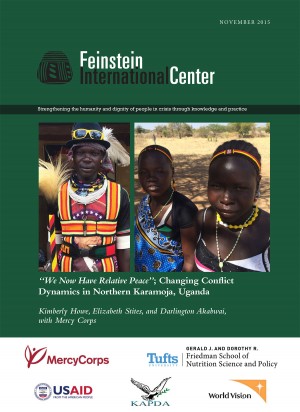
“We Now Have Relative Peace”; Changing Conflict Dynamics in Northern Karamoja, Uganda
This report reflects research from early 2015 conducted by the Feinstein International Center at the Friedman School of Tufts University and Mercy Corps in northern Karamoja, Uganda. The research examined changing conflict dynamics and related conflict mitigation and peacebuilding initiatives. The objective of the study was to provide a nuanced understanding of the current threats to security at the household, community, district and regional levels, and to examine how these dynamics have changed in recent years. The study examined conflict mitigation initiatives, including access to and efficacy of these systems.
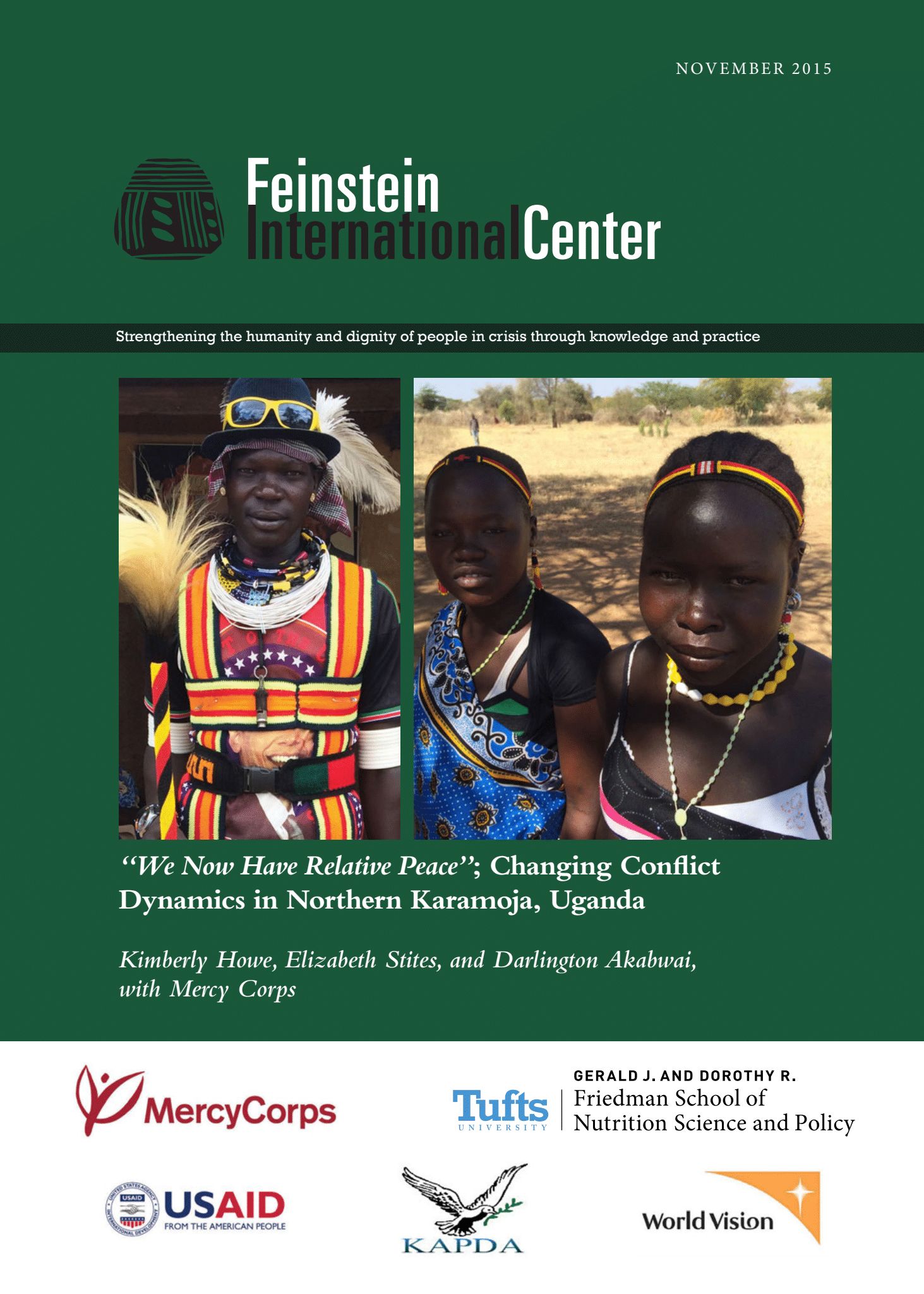
“We Now Have Relative Peace” ; Changing Conflict Dynamics in Northern Karamoja, Uganda
The objective of the study was to provide a nuanced understanding of the current threats to security at the household, community, district and regional levels, and to examine how these dynamics have changed in recent years.
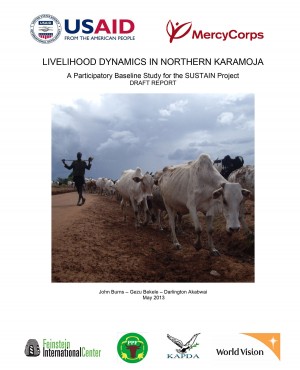
Livelihood Dynamics in Northern Karamoja: A Participatory Baseline Study for the SUSTAIN Project
This report documents the findings of a livelihoods assessment carried out as part of the USAID funded Sustainable Transformation in Agriculture and Nutrition (SUSTAIN) project being implemented by Mercy Corps and partners in the Karamoja sub-region of Northeastern Uganda. The overall goal of the SUSTAIN project is to promote peace and food security through three complementary strategic objectives aimed at (1) strengthening livelihoods, (2) improving nutritional outcomes for children under two and (3) building local capacities for conflict mitigation.The project is being implemented in three districts of Northern Karamoja, Abim, Kaabong and Kotido. The objective of this particular study is to inform implementation and collect baseline impact indicators for the activities under objective # 1. Under this objective (livelihoods strengthening)the project aims to improve productivity, market access, marketing behaviors and the overall business environment.
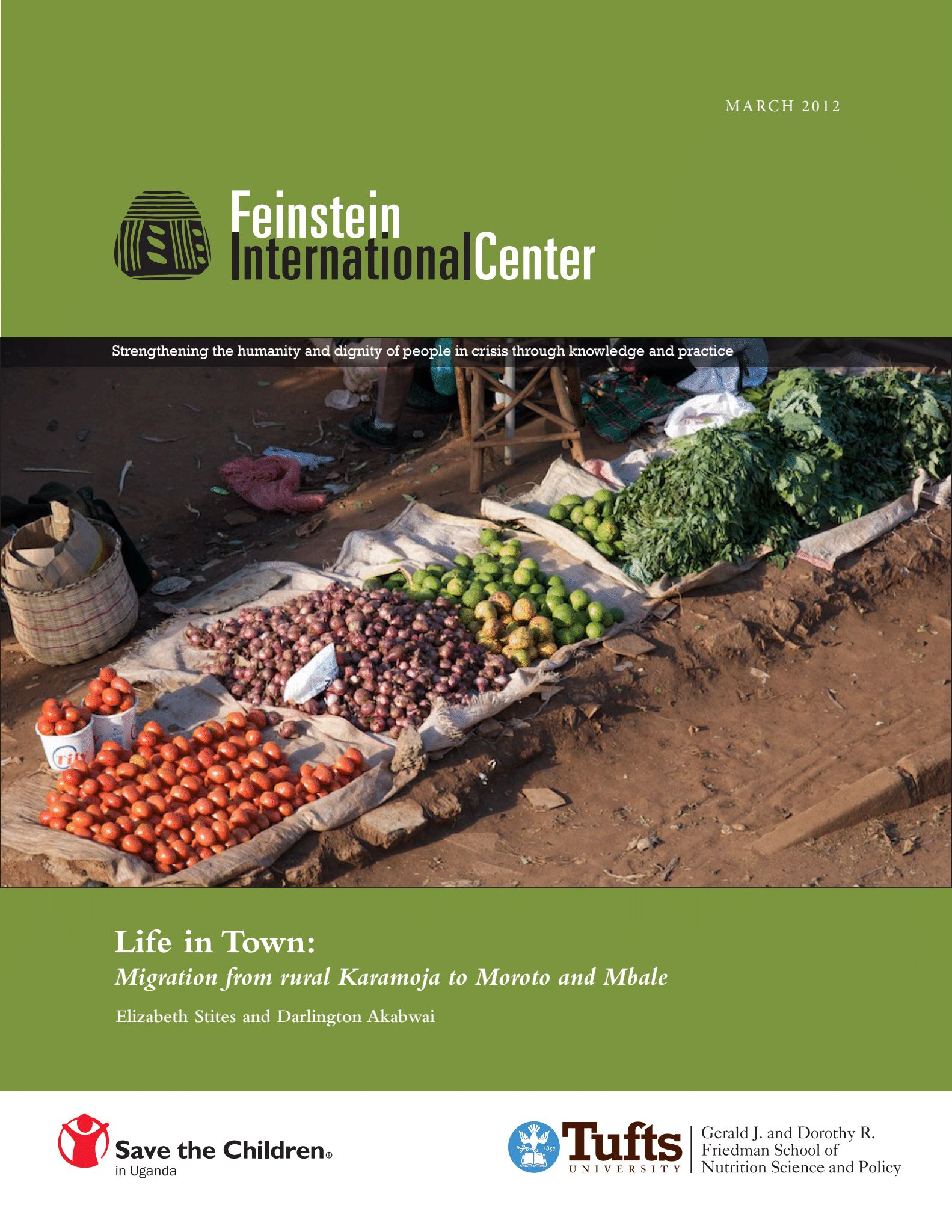
Life in Town: Migration from rural Karamoja to Moroto and Mbale
The phenomenon of out-migration from Karamoja is well known and widely discussed both by rural residents in the region and by officials in receiving cities
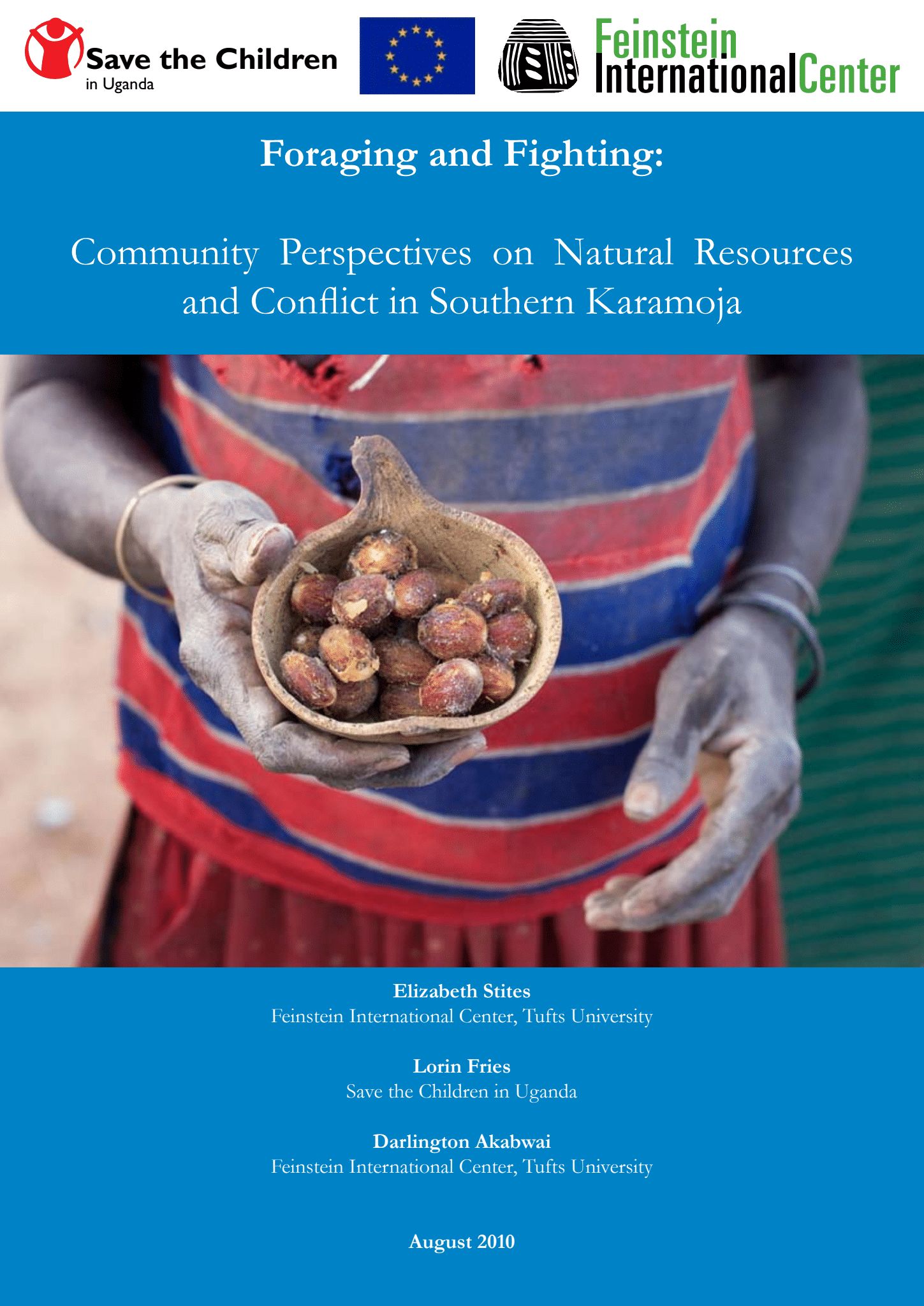
Foraging and Fighting: Community Perspectives on Natural Resources and Conflict in Southern Karamoja
In our research in Karamoja since 2005, respondents often discuss problems with natural resource access and availability, and with comparable frequency they describe conflict with neighboring or nearby groups who are also accessing natural resources.
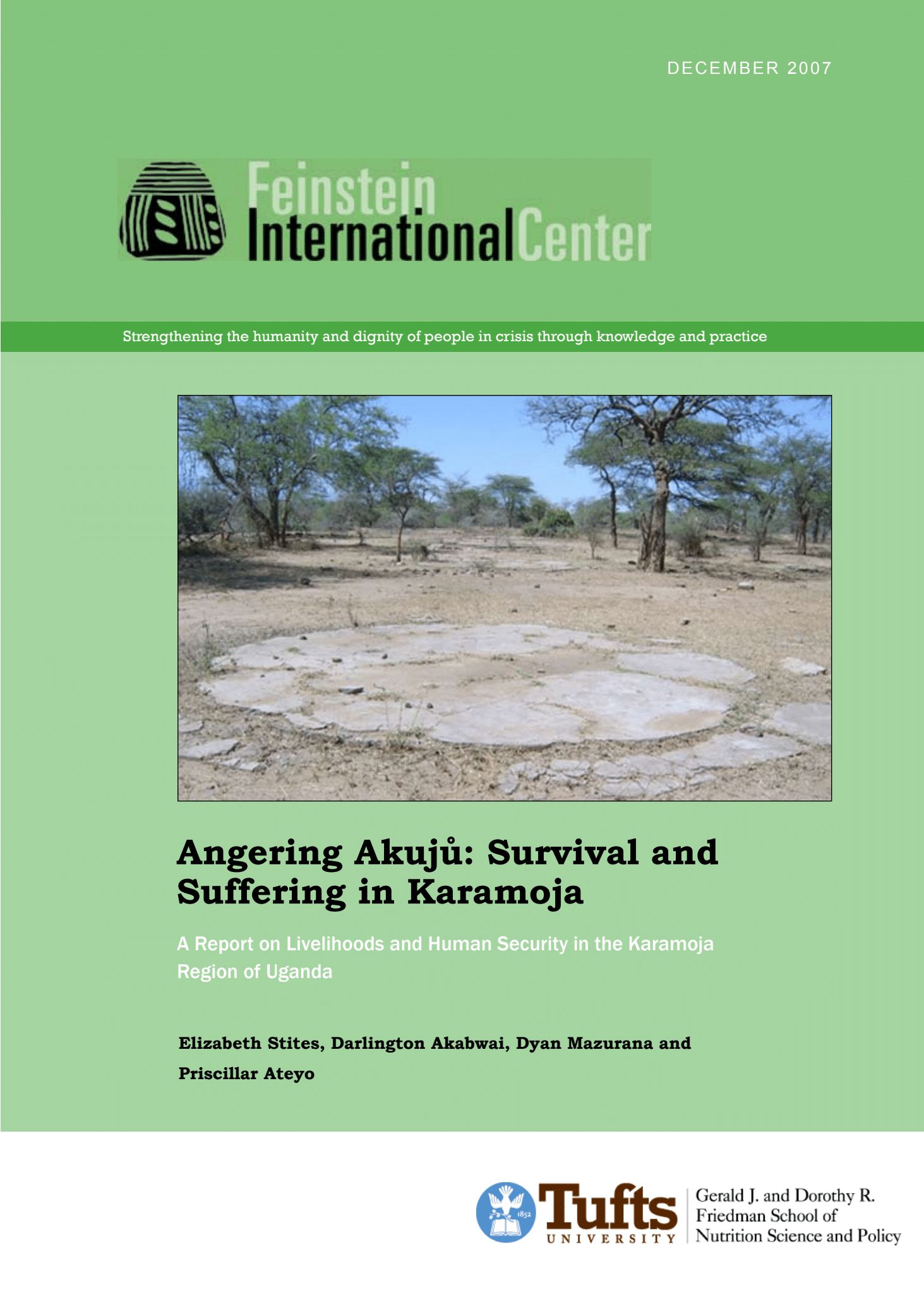
Angering Akujů: Survival and Suffering in Karamoja
A Report on Livelihoods and Human Security in the Karamoja Region of Uganda
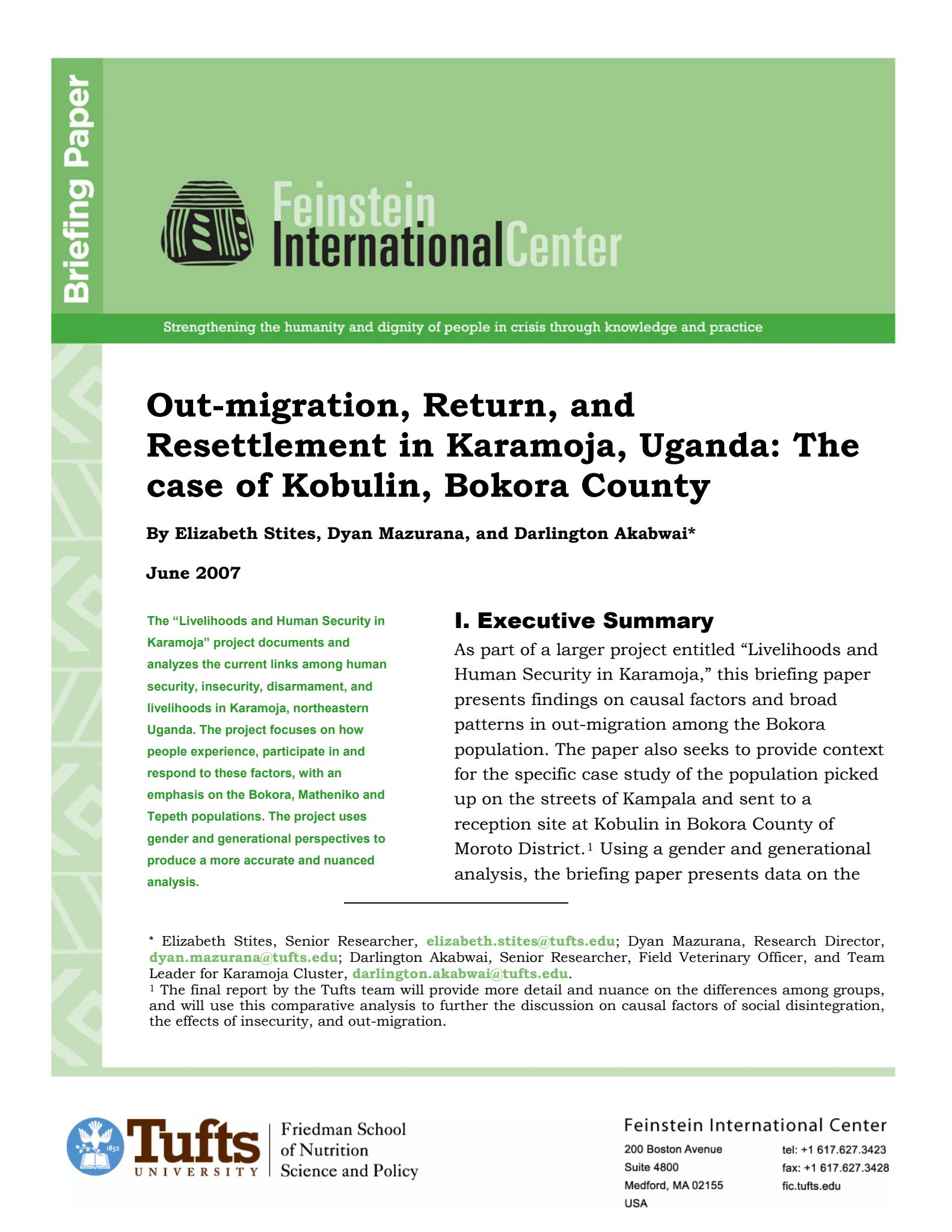
Out-migration, Return, and Resettlement in Karamoja, Uganda: The case of Kobulin, Bokora County
As part of a larger project entitled “Livelihoods and Human Security in Karamoja,” this briefing paper presents findings on causal factors and broad patterns in out-migration among the Bokora population.